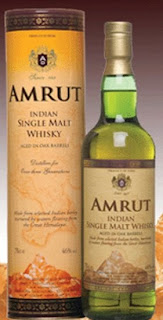Kosher Wine Spritzers; Now In Red!

Perhaps you think of kosher wine spritzers as always being on the lighter end of the wine palette/palate -- an affair strictly for white wines and blushes. But I beg to differ!
In the French restaurant I waited tables in for most of my twenties, my manager, Armand, introduced me to my first kosher wine spritzer, the "Rouge Limon." (Well, his version wasn't kosher, but mine's evolved that way.) He would stand languidly at the bar, pour himself half a glass of red wine, then top it off with soda water and a twist of lime. "We call it 'rouge limon'," he said, and I knew enough of the language to see why.
Then, of course, he would go into a tirade about how the tables were set, or how the bechamel was not quite right. I'm not complaining. We knew he meant it in love. And that job was where I learned everything I know about wine. I still have the corkscrew I carried in my apron, and use it when I'm especially in need of good luck.
Then my brother married a beautiful woman from Madrid, and she introduced me to the Calimocho (also spelled Kalimotxo), a 50/50 mixture of red wine and Coca-Cola. I was initially horrified, but her tales of being a teenager in Spain charmed me into trying it, and I admit to making it my kosher wine spritzer of choice every so often. If I want a kick of caffeine, say, or this past week when Spain beat Uruguay in the World Cup match (!).
Viva Espana -- and the sparkly red glass in my hand!



















